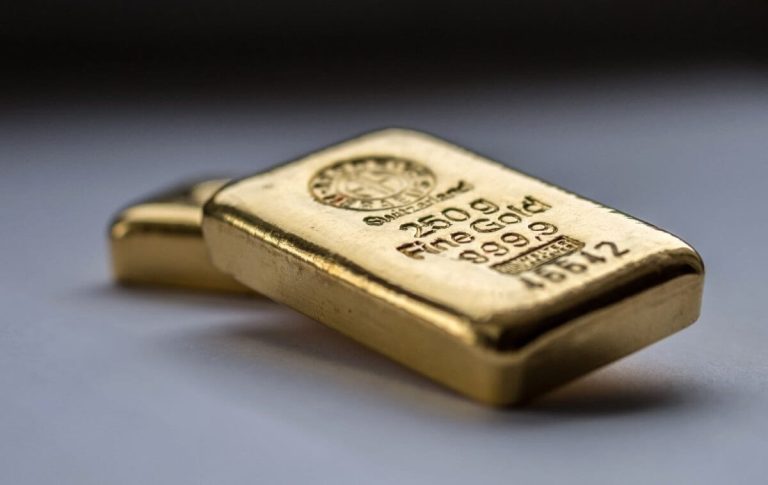Gold Drops 0.2% to $2,415.61 Amid Strong Dollar
Quick Look:
Gold Price Decline: Gold prices fell in Asian trade due to concerns over high U.S. interest rates, impacting safe-haven demand.
Industrial Metals Impacted: Copper and other industrial metals also dropped prices, influenced by speculative cooling and high U.S. interest rates.
Strong Dollar Effect: A strong U.S. dollar pressured metal prices, making commodities more expensive for other currency holders.
Gold prices fell in Asian trade on Wednesday, retracting further from record highs. This decline is driven by increasing concerns over high U.S. interest rates, with market participants eagerly awaiting more cues from the Federal Reserve. The losses extended beyond gold, affecting industrial metals like copper, which also pulled back from recent highs. This downturn in metal prices was influenced by a strong U.S. dollar and a cooling demand for safe-haven assets such as gold. Despite geopolitical tensions in the Middle East, following the tragic death of the Iranian President in a helicopter crash, there were few signs of escalating conflicts to sustain high safe-haven demand.
Industrial Metals Follow Gold’s Downtrend
The slump in gold prices was mirrored in the industrial metals market, particularly copper. Copper prices saw a pullback from their recent record highs as the speculative fervour surrounding the red metal subsided. This cooling was anticipated by investors, who were closely watching for more information on physical supply and overall demand. The uncertainty surrounding future demand and the looming influence of high U.S. interest rates contributed to a cautious market atmosphere. Copper, often viewed as a barometer for economic health, is sensitive to changes in market sentiment.
Strong Dollar Adds Pressure on Metal Prices
Another significant factor contributing to the decline in metal prices was the steady performance of the U.S. dollar. A strong dollar typically makes commodities priced in dollars more expensive for holders of other currencies, thereby reducing demand. This inverse relationship was evident as gold prices fell 0.2% to $2,415.61 an ounce. Meanwhile, gold futures expiring in June dropped 0.3% to $2,418.75. Despite these declines, spot prices remained near their recent peak of $2,450.06 an ounce. Market analysts noted that a decisive rally above today’s high of $2,434 could demonstrate strength and potentially lead to a test of Monday’s high of $2,450, with the possibility of further gains.
Market Analysis and Future Prospects
Looking ahead, the market is poised for potential volatility as it awaits further signals from the Federal Reserve. Analysts have identified a target zone that almost reached yesterday. It includes two key Fibonacci extension targets between $2,461 and $2,462. The $2,462 level is particularly significant as it represents a 161.8% extended retracement from a 51-month decline that began in August 2011 at a trend high of $1,921. This level is further validated by a shorter Fibonacci extended target, marking $2,460 as a critical point.
The anticipation of these technical levels highlights the potential for significant price movements in the near future. Investors and traders will closely monitor these developments with an eye on the Federal Reserve’s upcoming announcements.; They should provide further insights into the future trajectory of U.S. interest rates. This delicate interplay between technical indicators and macroeconomic factors underscores the complexity and dynamism of the current metals market.
The recent decline in gold and industrial metal prices reflects various factors. It also includes rising U.S. interest rate concerns, a strong dollar, and tempered safe-haven demand amidst stabilising geopolitical conditions. As the market awaits further guidance from the Federal Reserve, the interplay of these elements will continue to shape the metals landscape in the coming weeks.
The post Gold Drops 0.2% to $2,415.61 Amid Strong Dollar appeared first on FinanceBrokerage.



